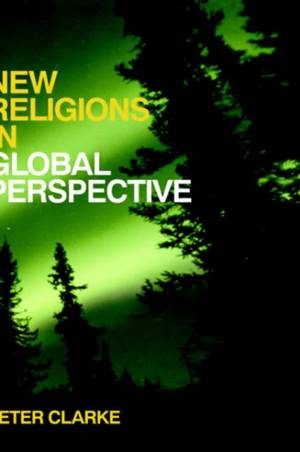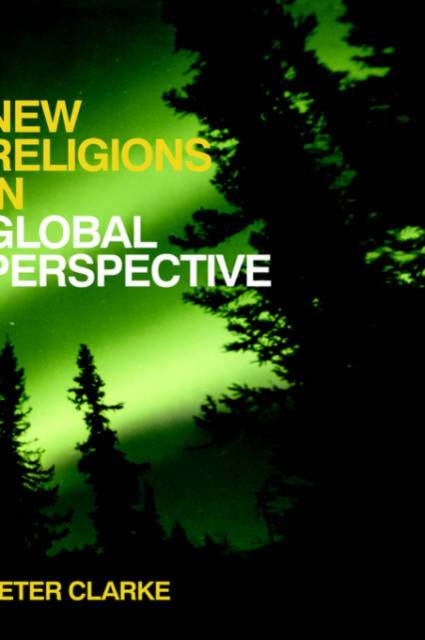
- Retrait gratuit dans votre magasin Club
- 7.000.000 titres dans notre catalogue
- Payer en toute sécurité
- Toujours un magasin près de chez vous
- Retrait gratuit dans votre magasin Club
- 7.000.0000 titres dans notre catalogue
- Payer en toute sécurité
- Toujours un magasin près de chez vous
New Religions in Global Perspective
Religious Change in the Modern World
Peter B ClarkeDescription
Peter B. Clarke's in-depth account explores the innovative character of new religious movements and new forms of spirituality from a global vantage point. Ranging from North America and Europe to Japan, Latin America, South Asia, Africa and the Caribbean, it is the perfect introduction to NRMs such as Falun Gong, Aum Shirikyo, the Brahma Kumaris, the Ikhwan or Muslim Brotherhood, Sufism, the Engaged Buddhist and Engaged Hindi movements, Messianic Judaism and Rastafarianism.
Charting the cultural significance and global impact of NRMs, he discusses the ways in which various religious traditions are shaping, rather than displacing, each other's understanding of notions such as transcendence and faith, good and evil, of the meaning, purpose and function of religion, and of religious belonging. He then examines the responses of governments, churches, the media and general public to new religious movements, as well as the reaction to older, increasingly influential religions, such as Buddhism and Islam, in new geographical and cultural contexts. Taking into account the degree of continuity between old and new religions, each chapter contains not only an account of the rise of the NRMs and new forms of spirituality in a particular region, but also an overview of change in the regions' mainstream religions.
Spécifications
Parties prenantes
- Auteur(s) :
- Editeur:
Contenu
- Nombre de pages :
- 408
- Langue:
- Anglais
Caractéristiques
- EAN:
- 9780415257473
- Date de parution :
- 06-01-06
- Format:
- Livre relié
- Format numérique:
- Ongenaaid / garenloos gebonden
- Dimensions :
- 159 mm x 240 mm
- Poids :
- 739 g

Les avis
Nous publions uniquement les avis qui respectent les conditions requises. Consultez nos conditions pour les avis.






